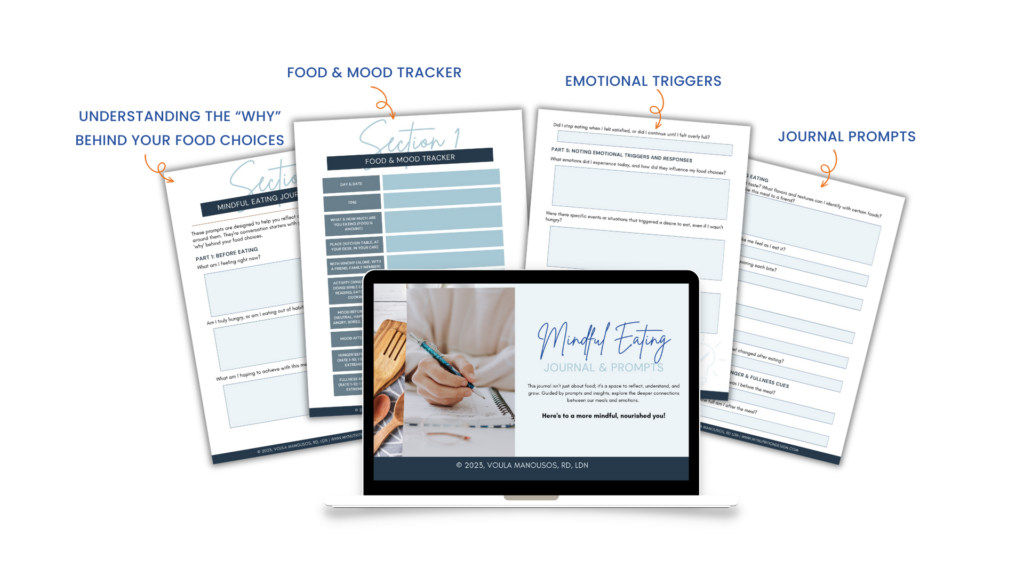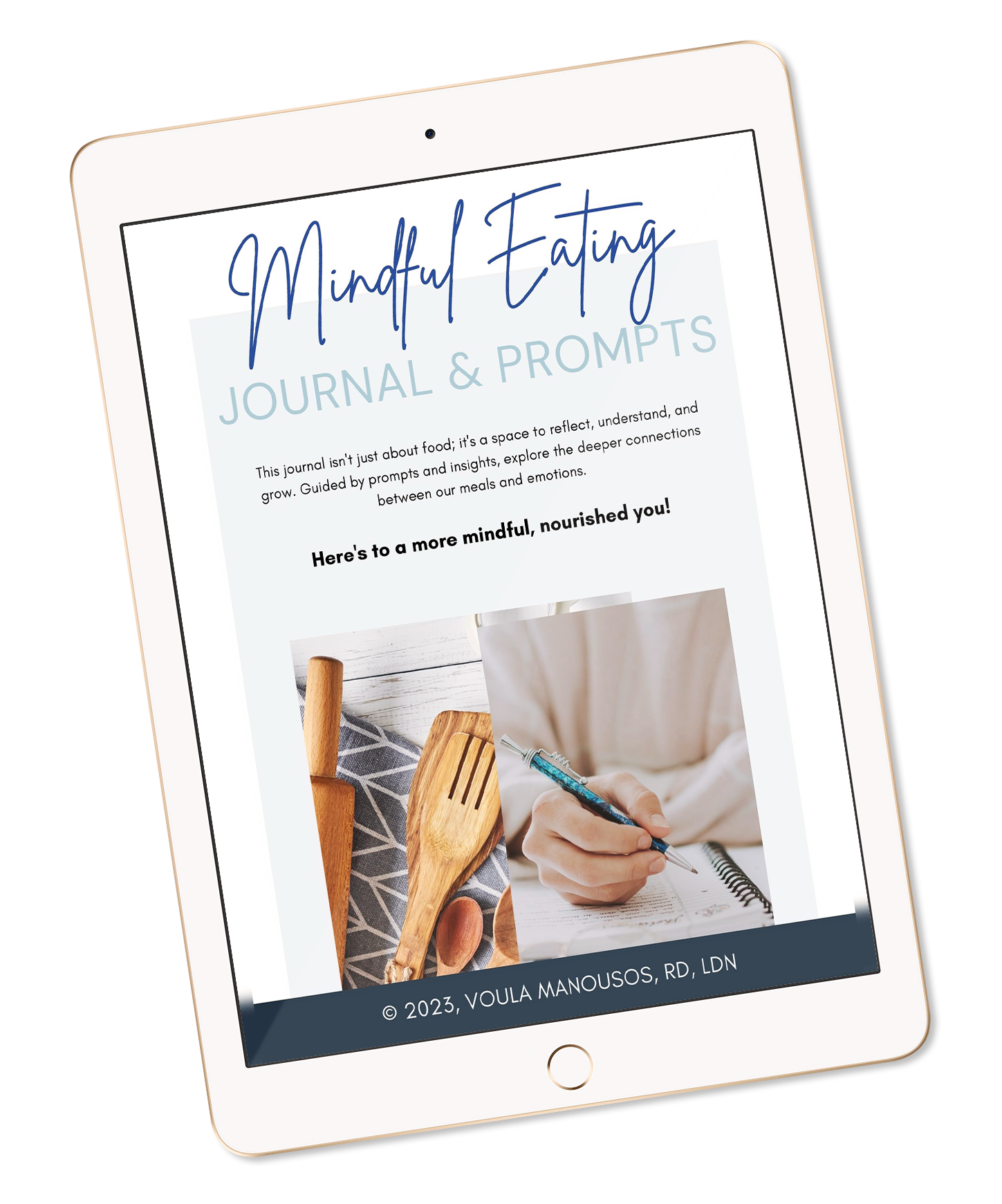Intermittent fasting is a popular term these days, especially when talking about losing weight and getting healthier. This dietary approach, involving cycles of fasting and eating, is often praised for its benefits in blood sugar regulation and potential weight loss.
However, as a dietitian who believes in long-term, healthy eating habits, I’m not convinced that intermittent fasting is a good plan for everyone.
In this post, we’ll look into what intermittent fasting is, its benefits, its challenges, and think about whether it’s a viable lifestyle in the long run.
Understanding Intermittent Fasting
Intermittent fasting (IF) is more than just a diet—it’s a pattern of eating. It doesn’t prescribe what to eat, but rather when to eat. The core idea revolves around alternating periods of eating and fasting, creating a rhythm that can impact various aspects of health.
There are several types of IF, each with its unique structure:
16/8 Method: This popular approach involves fasting for 16 hours and then eating during an 8-hour window. It’s favored for its simplicity and adaptability to daily routines.
5:2 Diet: Here, you eat normally for 5 days a week and then significantly reduce calorie intake for the other 2 days. This method is often chosen for its flexibility and less restrictive nature.
Alternate Day Fasting: A less popular method is called alternate day fasting. This approach involves alternating between days of normal eating and days where food intake is heavily reduced or eliminated. Alternate Day Fasting is a more intense form of Intermittent Fasting that some find more effective in regulating blood sugar and aiding in weight loss. However, due to its rigorous nature, it’s important to consider individual health conditions and lifestyle factors before adopting this method.
The underlying principle of Intermittent Fasting, including alternate day fasting, is time-restricted eating. This focuses on the timing of meals rather than restricting calories. Understanding the nuances of each Intermittent Fasting method is crucial in determining if it aligns with your lifestyle, weight loss, and health goals.

The Fasting Period in Intermittent Fasting
An important aspect of Intermittent Fasting (IF) is the ‘fasting period.’ This is the time frame during which food intake is either completely stopped or significantly reduced.
The fasting period varies depending on the IF method chosen. For instance, in the 16/8 method, the fasting period lasts for 16 hours, while in alternate day fasting, it encompasses an entire day.
Understanding the Impact of Fasting Days Each Week
Intermittent Fasting isn’t a daily meal plan; it often involves specific ‘days a week.’ For example, the 5:2 diet focuses on reducing ‘calorie intake’ on two non-consecutive days a week, while the rest of the week involves a ‘normal diet.’ This pattern allows for a balance between fasting and regular eating, helping to maintain a ‘healthy diet’ without feeling overly restricted.
The Role of Calorie Intake in Intermittent Fasting
In many forms of Intermittent Fasting, calorie intake is a key factor. Whether it’s the reduced calorie days of the 5:2 diet or the calorie-free fasting periods in the alternate day fasting, managing calorie intake is crucial. This control of caloric intake helps tap into fat stores to burn body fat, leading to potential weight loss.
The Science of Fasting Periods and Caloric Intake
Intermittent Fasting (IF) isn’t just about skipping meals; it’s an approach to managing your caloric intake. During fasting periods, the body shifts from using glucose as its primary energy source to burning body fat. This process, known as metabolic switching, plays a vital role in the effectiveness of Intermittent Fasting as a weight loss strategy.
By alternating between normal calorie intake on non-fasting days and reduced food consumption on fasting days, Intermittent Fasting encourages the body to utilize its fat stores, aiding in weight loss. However, it’s important to balance fasting periods with a healthy diet during eating windows to ensure nutritional needs are met.
The Health Benefits of Intermittent Fasting

Studies show that IF can lead to a reduction in calorie intake and changes in hormone levels that facilitate weight loss. For instance, it can lower insulin and increase growth hormone levels, along with the fat-burning hormone norepinephrine. These hormonal changes, coupled with a decrease in calorie intake, might increase your metabolic rate by 3.6–14%.
Research also suggests that IF can be a powerful tool for weight loss. A review study found that IF could cause 3–8% weight loss over 3–24 weeks, a significant amount compared to most weight loss studies. This pattern of eating also led to a 4–7% reduction in waist circumference, suggesting a substantial loss of harmful belly fat. Additionally, intermittent fasting has been shown to cause less muscle loss than continuous calorie restriction.
From my professional experience, I see Intermittent Fasting as a bit of a double-edged sword. It’s definitely a type of diet, and with any diet, its sustainability is key. I’ve noticed that forms of Intermittent Fasting with shorter eating windows can be particularly challenging to maintain in the long run.
It’s important to remember that while Intermittent Fasting might help some people lose weight, it’s not necessarily a one-size-fits-all solution or sustainable for everyone. The key is to also learn how to re-introduce normalized eating patterns once the weight is lost post- Intermittent Fasting.
Intermittent Fasting and Weight Loss Plateaus
Many of my clients experience a weight loss plateau after initial success with any new eating, lifestyle and exercise routine. Hitting a weight loss plateau can be a challenging phase in anyone’s health journey. While Intermittent Fasting can offer a way out of this standstill it’s important to tread carefully. As always, I recommend caution with drastic diets and severe restrictions.
In my practice, overcoming a plateau means a more balanced and sustainable approach, which includes adjustments in dietary habits and an increase in physical activity. This helps move past the plateau and promotes healthier and more sustainable weight management in the long term.
Next, let’s discuss the difficulties and possible drawbacks of adopting an Intermittent Fasting lifestyle, from the practicality of its strict eating schedules to the broader implications it may have on our social lives, nutrition, and mental health.
Challenges and Limitations
Adopting Intermittent Fasting isn’t always smooth sailing. One significant challenge is the difficulty in sticking to strict eating windows. This rigid schedule can be hard to maintain, especially for those with unpredictable or busy lifestyles.

Here are some of the challenges and limitations that should be considered:
- Difficulty with Strict Eating Windows: The rigid schedule of Intermittent Fasting can be hard to maintain, especially for those with unpredictable or busy lifestyles. Sticking to these strict eating times often requires significant planning and discipline.
- Social Implications: Intermittent Fasting can also be socially challenging. Meal times are often social events, and having limited eating periods can impact social interactions and enjoyment of food with friends and family. It might lead to feelings of isolation or being out of sync with others’ eating schedules.
- Nutritional Concerns: When eating windows are restricted, it becomes more challenging to consume a well-balanced diet that fulfills all nutritional needs. This is particularly true for diets with very narrow eating windows, increasing the risk of potential nutrient deficiencies.
- Psychological Impact: There’s a concern about developing an unhealthy relationship with food. Intermittent Fasting can lead to an obsessive focus on food during eating periods and anxiety during fasting times, which can be counterproductive to the overall goal of a healthy, balanced lifestyle.
- Risk of Overeating: Due to the restrictive nature of the fasting period, there’s an increased risk of overeating or binge eating when the eating window opens. This tendency arises as individuals may feel extremely hungry, leading them to consume more calories than needed. This overcompensation can negate the benefits of the fasting period and, in some cases, may even lead to weight gain.
It’s important to carefully weigh these challenges against the potential benefits of Intermittent Fasting, and to consider whether it aligns with one’s lifestyle, health goals, and ability to maintain a balanced and nutritious diet.
Considering these challenges, my opinion is that while Intermittent Fasting can offer some benefits, it is not a sustainable long-term solution for most people. Balancing its advantages against these limitations is key to determining if it’s the right approach for your health goals.

Who Might Benefit from Intermittent Fasting to Lose Weight?
Intermittent Fasting (IF) isn’t for everyone, but it might be beneficial in certain scenarios. Let’s look at who could potentially see positive outcomes from this approach:
Individuals with Short-term Weight Loss Goals
Intermittent Fasting can serve as a tool for those looking to jumpstart their weight loss journey. However, it’s important to approach this strategy to lose weight with realistic expectations and a plan for transition to a more sustainable diet post-Intermittent Fasting.
People with Specific Medical Conditions
Some individuals with conditions like type 2 diabetes or metabolic syndrome might find Intermittent Fasting (IF) beneficial. It’s been shown to improve insulin sensitivity and reduce blood sugar levels.
Disclaimer: Consult with a healthcare provider before starting Intermittent Fasting, particularly if you have any health conditions. It’s important to ensure that any new diet plan is safe and suitable for your specific health needs.
Role of a Registered Dietitian in Intermittent Fasting
Navigating Intermittent Fasting can be more complicated than it seems on the surface, and a Registered Dietitian can play a critical role in this process. As a Registered Dietitian, I can provide tailored advice that considers your individual health status, lifestyle, and dietary preferences.
This guidance is essential to ensure that while Intermittent Fasting, you’re still receiving all necessary nutrients and maintaining a balanced diet and assisting in creating a sustainable long-term eating plan that aligns with your health and wellness goals.
This personalized approach guarantees that your path to weight loss and improved health is not only supported by expert knowledge but is also uniquely tailored to your specific needs.
Interested in discovering a balanced and sustainable way of eating that works for you? Get in touch with me today. Together, we can develop a nutrition plan that fits your lifestyle, helps you achieve your goals, and promotes long-term well-being.

A Balanced Approach to Intermittent Fasting
It’s important not to view Intermittent Fasting as a cure-all. The effectiveness and suitability of Intermittent Fasting can vary greatly depending on individual health status, lifestyle, and dietary preferences.
Potential Risks and Considerations
While Intermittent Fasting can offer benefits, it’s not without its risks. Prolonged fasting periods can lead to nutrient deficiencies and may not be suitable for everyone, especially those with higher nutritional needs, such as athletes or pregnant women.
The psychological impact of IF should also be considered. It’s crucial to maintain a healthy relationship with food and avoid patterns that may lead to disordered eating.
Furthermore, it’s important to be aware that Intermittent Fasting can sometimes lead to overeating when the fasting window closes. This can negate the benefits of the fasting period and, in some cases, may even result in unwanted weight gain. Given these considerations, Intermittent Fasting should not be seen as a universal solution.
Before starting an Intermittent Fasting regime, it is best to consult with your doctor or a healthcare professional. They can provide guidance and ensure that this meal pattern is suitable for your personal health condition and nutritional needs. Making an informed decision with professional advice is key to safely incorporating Intermittent Fasting into your lifestyle.
Alternatives to Intermittent Fasting
Intermittent Fasting (IF) is just one of many approaches to weight management, and it’s not always the best fit for everyone.

Let’s take a look at some sustainable diet and lifestyle changes that can be more suitable, especially for long-term health and wellbeing:
Sustainable Diet and Lifestyle Changes:
- Prioritize Whole Foods: Focus on incorporating a balance of fruits, vegetables, whole grains, lean proteins, and healthy fats into your diet.
- Mindful Eating: Practice being present during meals, savoring each bite, and listening to your body’s hunger and fullness cues.
- Stay Hydrated: Drinking plenty of water throughout the day can aid digestion, satiety and overall health.
- Regular Meal Times: Having a consistent eating schedule can help regulate your metabolism and prevent overeating.
Speaking of sustainable lifestyle changes, I’ve created a special resource just for you. My free Mindful Eating Journal is designed to support your journey toward healthier eating habits.
It’s a tool for you to explore and understand your relationship with food in a more mindful and balanced way. And the best part? It’s yours absolutely free!
Deepen your awareness around food and nourish your body and mind in a whole new way. Download your free Mindful Eating Journal here.
Deepen your awareness around food and nourish your body and mind in a whole new way. Download your free Mindful Eating Journal here.
The Importance of Balanced Eating Habits:
Balanced eating is key to maintaining good health. It’s about ensuring your diet includes a variety of nutrients without being overly restrictive. This approach promotes a healthier relationship with food and is more sustainable than diets that require strict adherence to specific rules or fasting periods.
Adding Physical Activity
Incorporating low-impact physical activities into your routine is a great way to stay active and healthy. Activities like walking, biking, swimming, or even hobbies like bowling can be enjoyable and less strenuous on the body. These activities not only improve physical health but also enhance mental well-being and social interaction.
Remember, the key to a healthy lifestyle is finding a balance that works for you, one that includes wholesome foods, regular physical activity, and a positive mindset towards food and health.

The Verdict on Intermittent Fasting
In conclusion, Intermittent Fasting (IF) has its pros and cons. In certain situations, it can be a useful strategy for blood sugar regulation and short-term weight loss, but it’s not without challenges like strict eating schedules and potential nutrient deficiencies.
From my perspective, Intermittent Fasting can be a starting point for some (not all), in their weight loss journey but it’s not a long-term solution. The key is to find a balance that works for you, one that prioritizes your individual health and well-being without long term restriction that is not sustainable.
Ready to transform your relationship with food? Book a personalized consultation call with me to explore a balanced, joyful approach to eating.Remember to download our Mindful Eating Journal. This unique journal, filled with prompts, food & mood charts, and space for your reflections, is your companion in discovering a healthier, more mindful way of eating. It’s more than just tracking what you eat; it’s about understanding your emotions and experiences with food. Get your copy here and start your journey towards joyful, mindful eating today!






